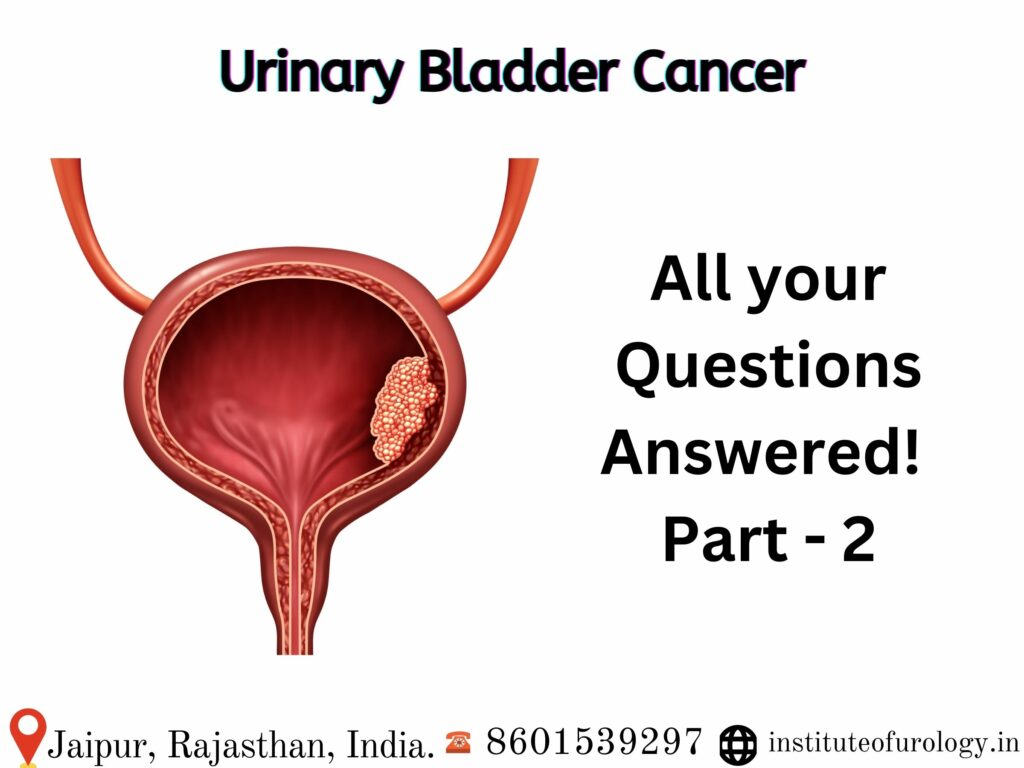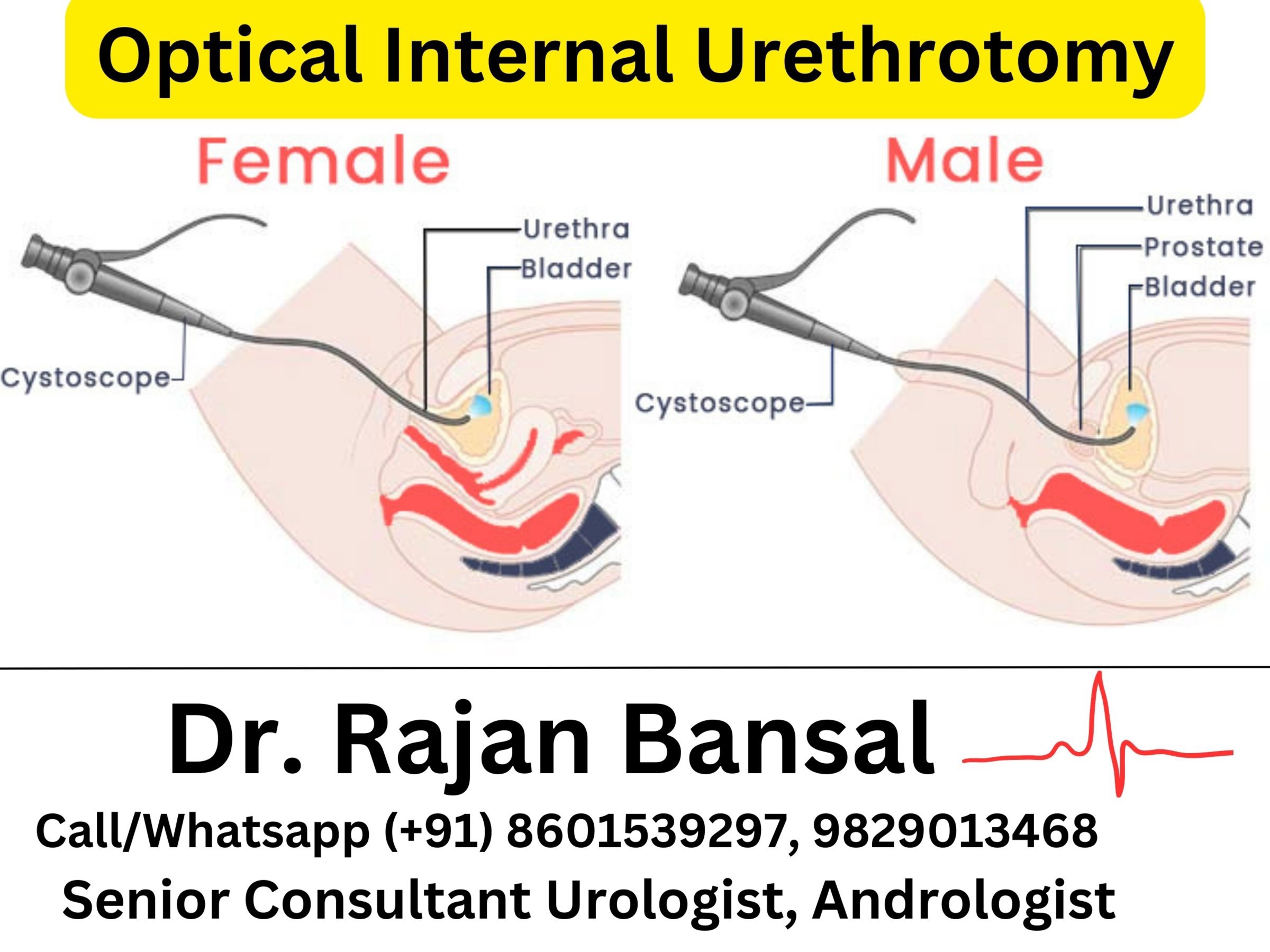
In the last post we discussed about the Symptoms and Causes of Urinary Bladder Cancer. In continuation to that post, today we will talk about the diagnosis and treatment.
How is the Diagnosis of Urinary Bladder Cancer Made?
The main tests which help in diagnosing bladder cancer are:
Ultrasonography – This is the safest, non invasive procedure where the Sonologist can visualise any abnormal growth pattern within the urinary bladder. It also gives an idea about the invasion of the cancerous growth.
CT Scan – Precisely CECT Scan (Contrast Enhanced CT Scan) is done once a growth in the bladder is suspected at Ultrasonography. This is the Gold Standard test for bladder cancer. CT Scan helps in staging the tumour as well. It can also detect any smaller growths in any other areas of urinary tract which might have not been visible on ultrasonography. CECT is only done when serum Creatinine level is normal.
MRI Scan – When patient’s creatinine is raised, instead of CECT scan, we prefer doing MRI scan where there is no need of using any contrast material for the scan. MRI fetches us almost the same information at CT Scan but it is a slightly more expensive test.
Urine Cytology – Here, a sample of urine is checked under a microscope to look for any abnormal cells. Cancer cells are often seen in microscopy in patients of bladder cancer. Cytology also helps get a clue about the type of cancer whether it is transitional cell type or squamous cell type.
Cystoscopy – This is a non invasive test. Here, a thin fibre-optic scope is inserted through the urethra to reach the bladder. The urologist can visualise the inside of the whole bladder and look for the affected area. The cancerous growth can be studied directly and physical features can be noted with precision.
Blood tests, urinalysis and a few other tests are also routinely performed to record the other parameters which are extremely helpful while treating the patient.
How is Urinary Bladder Cancer Treated?
Most of the urinary bladder cancers are diagnosed at a very early stage. When diagnosed early, treatment is more likely to be successful. The following are the modalities that are used for treating bladder cancer –
Urinary Bladder Cancer Treatment is given according to Stage of Cancer.
A. Superficial Bladder Tumour or Non Muscle Invasive Urinary Bladder Cancer – Here, the cancer cells have reached the lamina propria which is the base of the superficial layer, but not yet invaded the muscles of the bladder. The most common procedure carried out for such superficial bladder cancers is TURBT or Trans Urethral Resection of Bladder Tumour.
TURBT removes all the visible cancerous growth from the lumen of the bladder. After TURBT, the removed tissue is then sent for histopathological study where the pathologist studies the tissue in detail and confirms if it was a superficial bladder tumour. This report also tells us if the bladder tumour was a high grade bladder tumour or low grade bladder tumour.
i) Low Grade Bladder Tumour – Here, after TURBT, no further treatment is required. However, strict follow up is recommended. A cystoscopy has to be done every 6 months for 1 year then once a year for 5 years.
ii) High Grade Bladder Tumour – Here, intra vesicle BCG therapy is given after 2-4 weeks. Cystoscopy has to be done every 3 months for 2 years and then 6 monthly for next 2 years and then annually for 5 years.
B. Muscle Invasive Bladder Cancer – Here the cancer has grown and reached the deeper muscle layers of the urinary bladder. Sometimes, it grows further to reach the fatty layers or the nearby tissues or organs surrounding the bladder.
Here, the most common treatment given is radical cystectomy (surgical removal of bladder). This surgical removal is then followed by intensive chemotherapy. When the bladder is completely removed, a surgery known as “Urodiversion surgery” is done to provide a new passage for the urine. (Sometimes, a few chemotherapy sessions are given before surgery to control the growth of cancer cells before surgery).
Besides chemotherapy, external radiation therapy can also be given to the patient which can be further combined with chemotherapy as the oncology team considers the best for the patient. Remember, it is easier said than done. Cancer treatment is a team work and needs highly specialised care. Early and correct diagnosis favours best outcomes. Hence it is mandatory to see a good urologist as soon as you have reasons to suspect that you might be suffering from the disease.
We hope this article was helpful in clearing your doubts about urinary bladder cancer. We can be reached at 9829013468 for any queries. For direct consultation, please take an appointment at Institute of Urology, Jaipur by calling 9829013468 or you can directly talk to Dr. Rajan Bansal at 8601539297.







